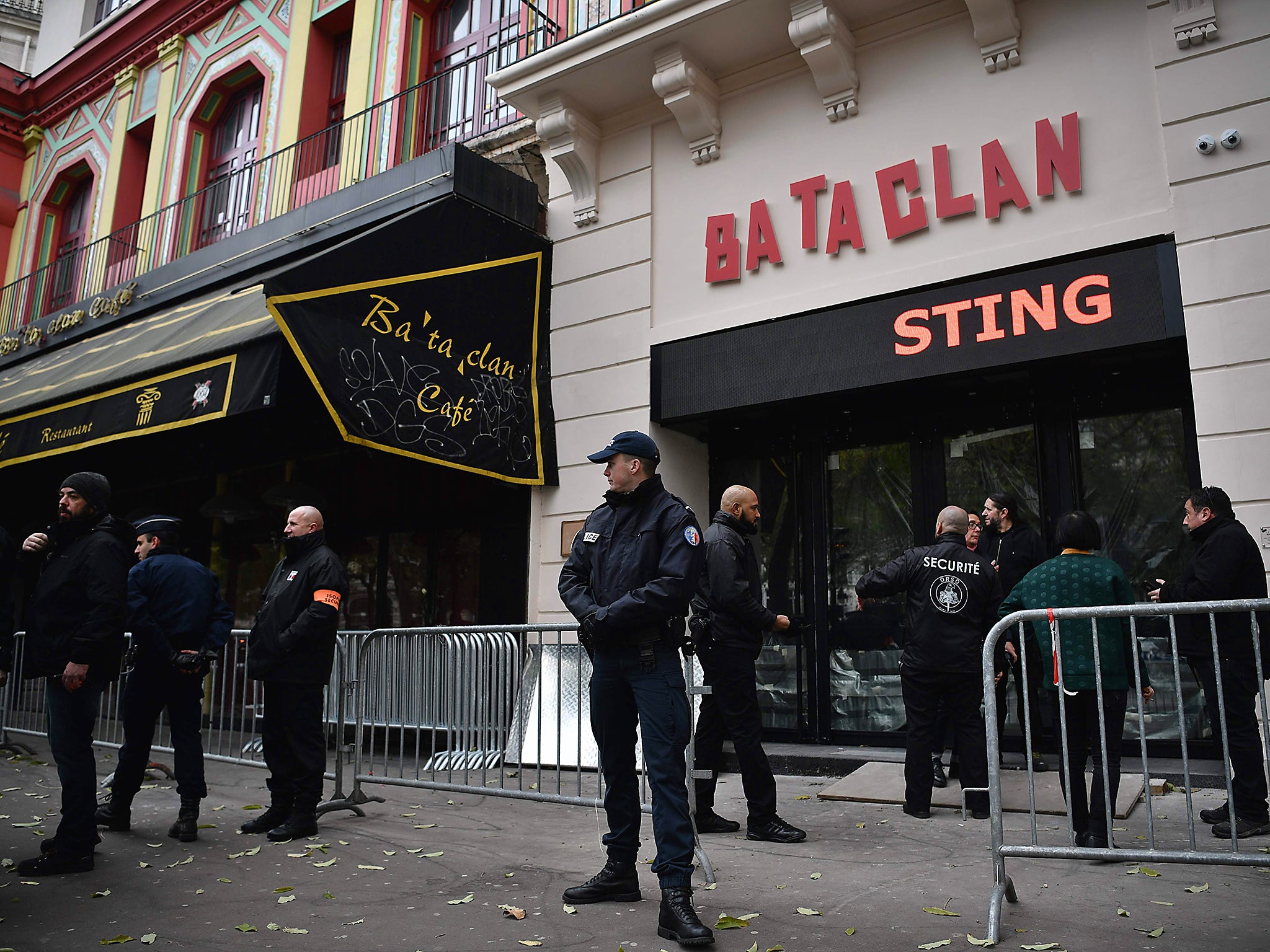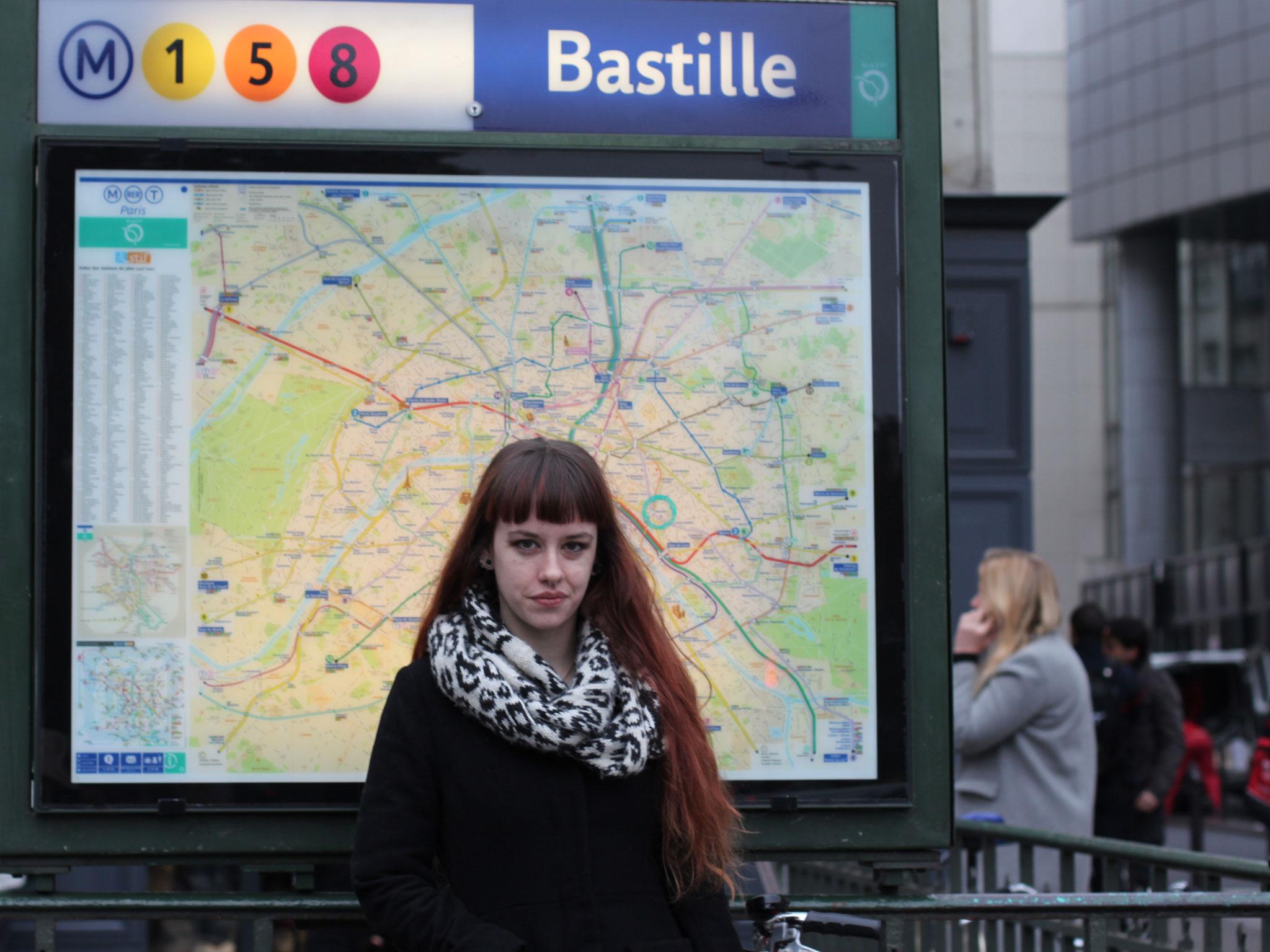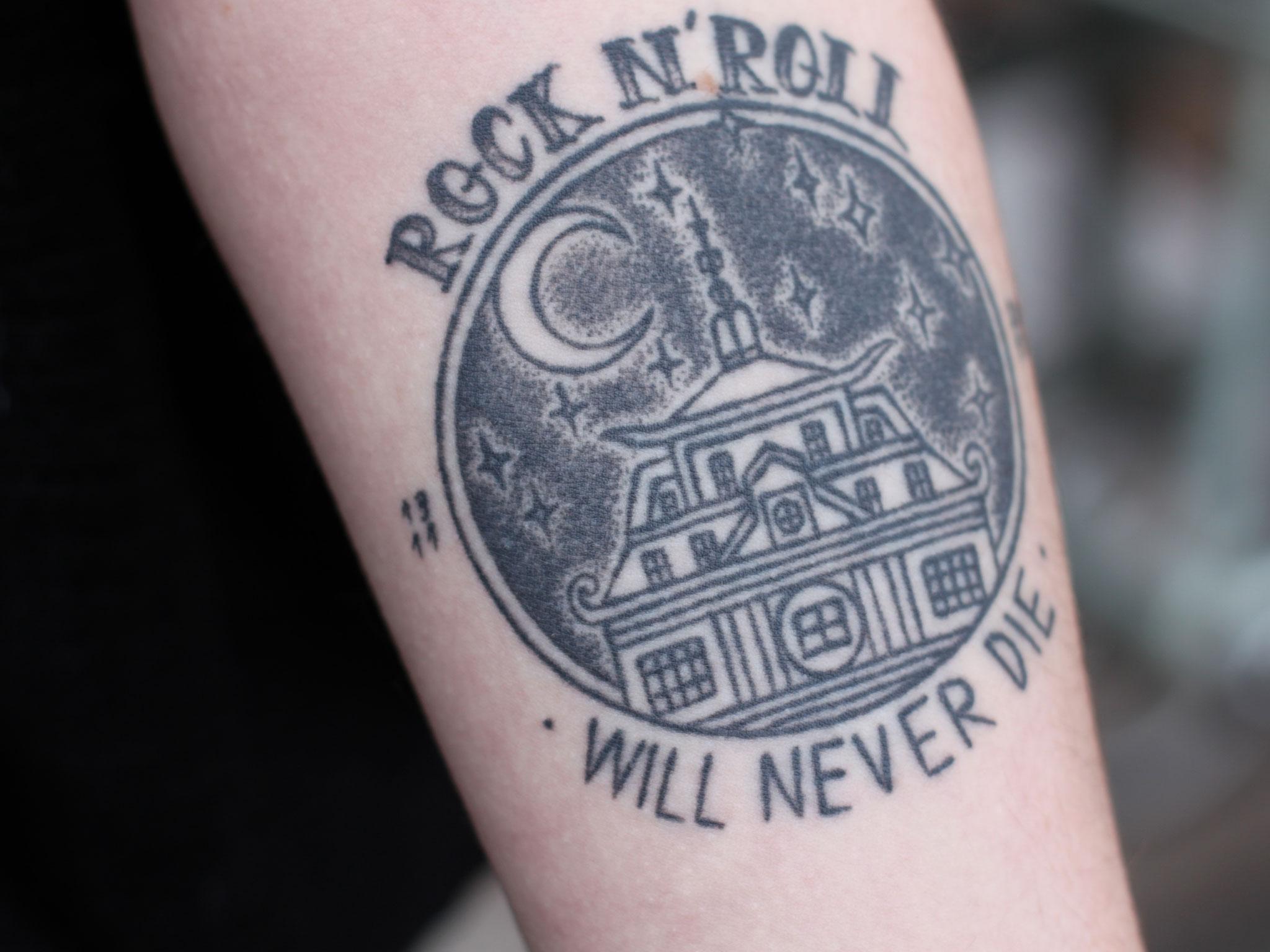Paris attacks anniversary: ‘Open the door, I am here to rescue you,’ Isis gunman told Bataclan survivor
Exclusive: Kelly Le Guen, a music reporter, was trapped in the Bataclan for more than two hours

Your support helps us to tell the story
From reproductive rights to climate change to Big Tech, The Independent is on the ground when the story is developing. Whether it's investigating the financials of Elon Musk's pro-Trump PAC or producing our latest documentary, 'The A Word', which shines a light on the American women fighting for reproductive rights, we know how important it is to parse out the facts from the messaging.
At such a critical moment in US history, we need reporters on the ground. Your donation allows us to keep sending journalists to speak to both sides of the story.
The Independent is trusted by Americans across the entire political spectrum. And unlike many other quality news outlets, we choose not to lock Americans out of our reporting and analysis with paywalls. We believe quality journalism should be available to everyone, paid for by those who can afford it.
Your support makes all the difference.One of the survivors of last year’s deadly attacks at the Bataclan theatre has described the moment a terrorist posed as a member of the French security forces to get in the dressing room she was hiding in.
Three heavily armed Isis fighters launched an attack on the 1,500-seat Bataclan theatre on 13 November. In less than three hours, the men were dead, having killed 89 people at the concert hall and critically injuring dozens.
Kelly Le Guen, a music reporter for RockUrLife and Webzine, was among a group of 30 people trapped in what she described as a “suffocating” room for more than two hours before security forces stormed the hall.

At first, the terrorists made several attempts to break down the heavy door.
“We shielded the door with the furniture around us. I was standing behind a small fridge and with every loud knock the gunman gave on the door, I was pushing harder and harder against it,” Ms Le Guen told The Independent.
After a long period of silence, a man said: “Open the door, it’s the police, we’re here to rescue you.”
“It was a difficult decision, we were in doubt. After a vote by show of hands we decided against it,” she added. The decision ultimately saved their lives.
Ms Le Guen,described the evening as a “moment out-of-time”: “It seemed like time did not exist in that room. When the police finally arrived, I did not known if one or three hours had passed since we locked ourselves in.
“I was not exactly afraid to die but those long periods of silence do make you think about life and people you might leave behind. Do I have any regrets? Why was it so short? What comes after? How great it has been.
“After a while I realised these thoughts were not helping and tried imagining myself getting out of this room instead.”
When the police rescued the group, Ms Le Guen saw the full horror of the atrocity.
“The first thing I saw was a body lying just in front of the door. Then we had to go through the Bataclan’s main room to get out," she recalled. "There were dozens and dozens of bodies everywhere and the room had absorbed the smell of dry blood.”
A concert by British pop star Sting marked the reopening of the Bataclan on Saturday evening, with commemorations planned over the weekend. A year on, a single bullet hole in the wall of the front of the theatre serves as a reminder of the events of 13 November, as do the flowers still tied to barriers surrounding the venue

Ms Le Guen, who went back to work straight away after the attack, has tickets for the opening night. She is glad the venue is reopening.
“I can’t wait to go and I am so glad the show is sold out on Saturday," she said. "I know some people find it disrespectful towards the victims. But I disagree.
“Imagine if every café and restaurant where someone was killed in Paris had to close. There would be no more cafes left to go to.”
The Bataclan attack was the deadliest atrocity in an evening of horror during which 40 other people were shot dead and 413 wounded across Paris, many as they sat at cafés and on restaurant terraces.
More attacks followed in July when a truck driver killed 85 people as they celebrated Bastille Day on Nice’s Promenade des Anglais seafront. The same month, two French-born radicalised teenagers slit the throat of an elderly priest in Normandy.
On Sunday morning, President François Hollande and Anne Hidalgo, the mayor of Paris, will visit each of the sites of the attacks to unveil commemorative plaques, starting at the Stade de France in Saint-Denis, where the first suicide bombs were detonated.
Join our commenting forum
Join thought-provoking conversations, follow other Independent readers and see their replies
Comments